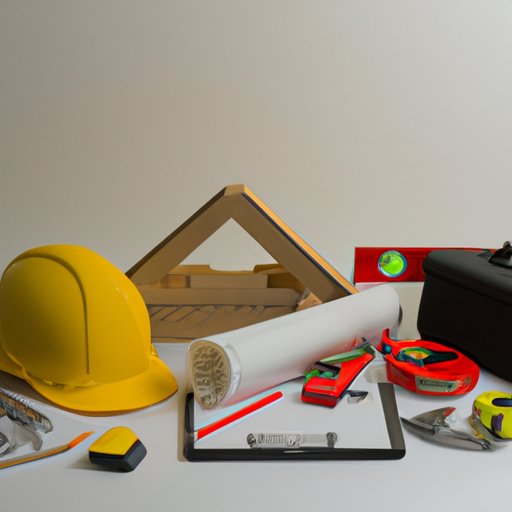Introduction
Starting a construction business can be an exciting venture for any entrepreneur with the necessary skills and resources. With the right planning and preparation, you can set yourself up for long-term success and financial stability. However, there are many important steps that need to be taken before getting started. In this article, we will explore what you need to do to get your construction business off the ground.
Identify Your Business Structure
Before launching your business, it is essential to identify the best type of business structure for you. The most common structures include sole proprietorship, partnership, corporation, and limited liability company (LLC). Each one has its own advantages and disadvantages, so it is important to research each option and consider which is best suited to your individual needs.
For example, a sole proprietorship is the simplest and least expensive structure to form, but it offers no protection from personal liability. On the other hand, a corporation provides more legal protection from debts and liabilities, but requires more paperwork and involves higher costs.
Secure Licensing and Insurance
Once you have determined the type of business structure you are going to use, you will need to secure the appropriate licenses and insurance policies. Depending on where you live, you may need to obtain a contractor’s license, building permit, or other forms of registration. Additionally, it is important to purchase the proper insurance coverage to protect your business from potential losses.
Common types of insurance coverage for construction businesses include general liability, workers’ compensation, property, and commercial auto. Make sure to talk to an insurance professional to ensure you are getting the right coverage for your particular business.
Develop a Business Plan
Creating a business plan is an important step in establishing a successful construction business. A business plan outlines your goals and objectives, as well as how you intend to achieve them. It should include information about the market, competition, products/services offered, pricing strategy, marketing efforts, and financial projections.
When writing your business plan, it is important to be realistic and thorough. Consider what sets you apart from other competitors and make sure to include any unique strategies you plan to utilize. Additionally, consult with an accountant or financial advisor for assistance with the financial section of the plan.
Establish a Budget
Developing a budget is essential for any business, regardless of size or industry. A budget helps you understand your financial situation and allows you to plan for future expenses. When creating a budget for a construction business, it is important to include both fixed and variable costs such as overhead expenses, labor, materials, and equipment.
In addition to allocating funds for necessary expenses, it is also important to save for unexpected costs. Setting aside money for contingencies helps ensure that your business is prepared for any financial surprises that may arise.
Acquire Equipment and Supplies
Having the right tools and supplies is essential for any construction business. Depending on the type of projects you plan to take on, you may need to purchase or rent various pieces of equipment. Common items include ladders, wheelbarrows, scaffolding, power tools, and safety gear. Additionally, you will need to acquire the necessary materials such as lumber, concrete, nails, and other building supplies.
When shopping for equipment and supplies, it is important to compare prices and look for discounts or deals. Additionally, there are a variety of online resources available to help you find the best prices on quality items.
Hire Qualified Employees
Finally, if you plan to hire employees, it is important to recruit qualified individuals who are knowledgeable in the field of construction. When recruiting, make sure to thoroughly review resumes and conduct interviews to ensure you are finding the right people for the job. Additionally, consider offering competitive wages and benefits packages to attract and retain talented employees.
Conclusion
Starting a construction business requires careful planning and preparation. By following these steps, you can ensure that you have the necessary resources and personnel in place to succeed. Identifying your business structure, securing the appropriate licenses and insurance policies, developing a business plan, establishing a budget, acquiring equipment and supplies, and hiring qualified employees are all essential steps for setting up a successful construction business.
If you need additional help, there are a variety of resources available including books, websites, and consultants who specialize in helping entrepreneurs launch their businesses. With the right guidance and dedication, you can turn your dream into a reality.
(Note: Is this article not meeting your expectations? Do you have knowledge or insights to share? Unlock new opportunities and expand your reach by joining our authors team. Click Registration to join us and share your expertise with our readers.)
